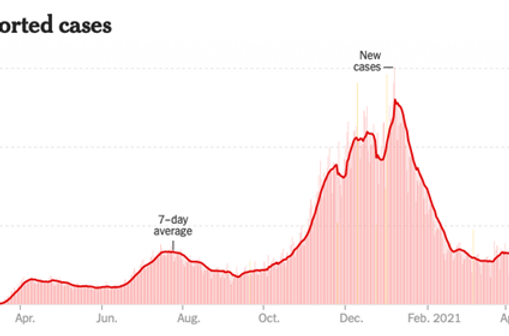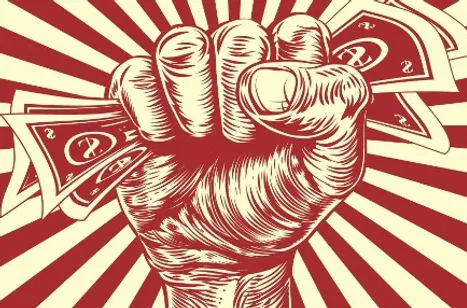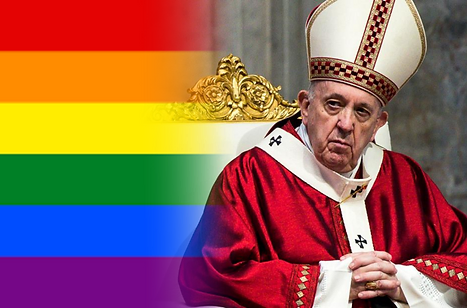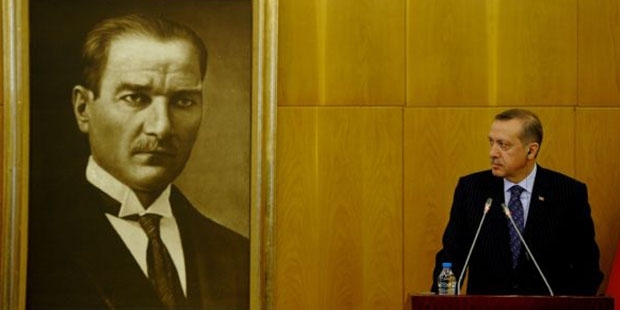
Review: Joe Biden’s First 100 Days in Office

US President Joe Biden has made many promises during his campaign run in the days leading up to his election in November last year. Although he has not yet accomplished everything he said he would accomplish, he moved fast since his inauguration in January and still issued more executive orders than his three predecessors during his first 100 days. (1)
With the COVID-19 pandemic on the rise, the climate crisis at an all-time high and many other state matters being under turbulence when Biden took over, let us look at some of the critical agenda items the US faced and how President Biden responded to them in his first 100 days:
The COVID-19 Pandemic
After former president Trump fell short of his goal of 20 million vaccinations by the end of 2020, the Biden administration’s vaccination timetable was a relief for Americans. By mid-March, 100 million shots were administered and by April 21st, Biden reached his goal of 200 million vaccinations, a week before his 100th day. (2)
To reach this goal, Biden put up a proposal of a $1.9 trillion “American Rescue Plan” passed by Congress before the mass vaccinations, which also helped speed up the process. The Biden administration launched a federal retail pharmacy program that essentially made some more drugstores into vaccination spots. President also partnered up with local communities and set up vaccination stops in community health centers, which made less fortunate Americans eligible for the shot. (3)
Covid-19 Cases reported by month, since Feb. 2020 (4)
One of President Biden’s most significant differences from Trump was that he did not try to be the front-man or spokesperson for specific matters that clearly had more expert people to speak on them. In this sense, Biden appointed the head of the U.S. National Institute of Allergy and Infectious Diseases, Dr. Anthony Fauci as his chief medical adviser and held frequent briefings with other professionals such as the CDC Director and heads of the White House Covid-19 task force.
Healthcare
Aside from the pandemic recovery, the Biden administration has acted rapidly to preserve and strengthen the position of the Affordable Care Act (ACA), one of his prominent campaign promises. In pursuit of this, the administration opened the ACA exchange in February, which enabled designated Americans to sign up for 2021 coverage until mid-August. In addition, those with annual income over 400% of the federal poverty level are now able to purchase insurance on the exchange for the first time.
As part of the $1.9 trillion relief package mentioned before, laid-off employees who still wanted to benefit from their work-based health insurance coverage were also enabled to get subsidies that paid their full costs for 5 months. (5)
Even though the Biden administration took these steps to amplify the positive effects of the Affordable Care Act, the actual battle for the ACA is still being fought in the Supreme Court of the United States. To cancel the aims of the Trump administration, this administration asked the court to sustain the ACA. (6) However, the court has not decided yet and it is unclear what action the administration is planning to take if the court rules against them.
Economy
Referred to as the American Rescue Plan, President Biden proposed a large economic relief plan only days before his inauguration, asking Congress to authorize $1.9 trillion in financing to assist Americans with another round of stimulus checks, unemployment aid, small business support, and money to help schools reopen safely; which it passed with minor alterations as of March. (7) With this plan in action, over 160 million stimulus checks were sent, worth $1,400 per individual, provided states with $39 billion to assist child care-givers in reopening and/or staying in business and disbursed more than $80 billion (8) in funds to states’ education boards. (9)
Apart from the relief package, Joe Biden has not been the most progressive in terms of economic recovery. For example, any separate program or package for struggling restaurants, theaters, music venues or local businesses has still not been launched. However, compared to his four predecessors, the Biden administration has dealt with unemployment better and created more jobs in his first three months in office. (10)
Immigration and Borders
The days when Trump’s “Mexico Wall”, the Muslim ban and ICE cages for children were agenda items of the United States government were not so long ago, and Joe Biden has signed several executive orders that reverse these extensive measures taken by his predecessor, including launching multiple task forces regarding legal immigrants, uniting separated families at the border and urging appropriate authorities to guarantee that LGBTQI+ refugees and asylum seekers get equal protection; to ease Trump’s “zero tolerance” policy. (11)
Even though the Biden administration has taken comprehensive and intense actions to swiftly reverse Trump practices, they have tripped on some stones on the road. They could not properly deal with and find sites to accommodate the influx of unaccompanied minor migrants at the southern border. (12) Also, the administration has lagged to keep some of their promises such as abandoning the plan to launch a policing commission in their first 100 days. (13)
Foreign Affairs
Despite the US-China relationship (14) always being on the agenda for the government, there were 3 specific relationships that Biden focused on since his inauguration: Russia, Afghanistan, and Iran.
Especially on the issue of Afghanistan, Biden took a step that was unusual for the United States in the Middle East by starting the withdrawal of troops from Afghanistan. The withdrawal officially started on May 1, and does not include the troops who will stay there to protect American diplomats. This was a big action in terms of convincing the world that the US only wants peace for the region and shows humanitarian and diplomatic efforts in pursuit of it. (15)
Number of Troops in Afghanistan by year and President (16)
The developments concerning US-Iran relations were not as significant as the Afghanistan measures. Nevertheless, the first step towards the reconsideration of a return to the nuclear deal was taken in Vienna this past April, when both countries resumed talks, even though it was indirectly. (17)
Diplomatic rivals for several decades now, US-Russia relations have not been sweeter with Joe Biden than they were under the Trump administration. The Biden administrations were not soft with their approach regarding allegations of Russian interference in the 2020 US election and issued sanctions against its SolarWinds cyber-attack. They also issued diplomatic expulsions against Russian human rights violations in Crimea. (18) In financial terms, Biden also blocked any American financial institution from taking part in the primary market for bonds by the Russian central bank. (19)
Climate
The climate crisis was a matter that especially the progressive left pushed moderate Democrats like Biden to act on upon being elected. As a result, Biden’s first day in office was dedicated to this cause, signing an executive order to rejoin the Paris Climate Accords that the Trump administration had left in late 2020. (20) Although the country did not officially rejoin until February, the US reputation in a global sense was restored by this contribution after Trump making the US the first and only country to exit this agreement. (21)
Another major action taken by President Biden to address the climate crisis was gathering a comprehensive Leaders to Leaders Summit on Climate on April 22nd. President Biden invited 40 world leaders to the summit to discuss the urgency and the economic benefits of stronger climate-sensitive policies. During the summit, President Biden made a commitment that the US would reduce its greenhouse gas emissions to 52% by 2030. One criticism that could be made towards the Biden administration in this context is that although it is a major development to rejoin the Paris accords, since these accords are non binding, the administration has to have a plan on how to abide by them, which they still have not. (22)
Justice and Inequality
One of the most prominent and unified criticisms against former president Trump was about his past, and some present actions that could be qualified as racist, ignorant and intolerant. President Joe Biden had to show the American people that he had respect and recognition towards any race, ethnicity, sexuality, gender and identity in general. Therefore, he formed a historic cabinet, the most racially diverse in US history. (23)
Without missing a beat, Joe Biden started signing executive orders that could potentially end various social justice issues such as the negative gap in homeownership between people of color and white people, the Asian-American struggles against bigotry and reversing a ban of Donald Trump which blocked the majority of transgender Americans from joining the military.
Despite these individual actions taken by the President, his administration is acting relatively slow and ineffective. They recently stated that they would not accomplish the task of forming a White House-led commission on policing, which was one of their campaign pledges, and would instead take their chance on trying to pass reforms through legislation. (24) Some critics also base this insufficiency of the administration on the Vice President Kamala Harris being a former prosecutor, and not approaching police reforms as swift and sure as a bipartisan Vice President should.






